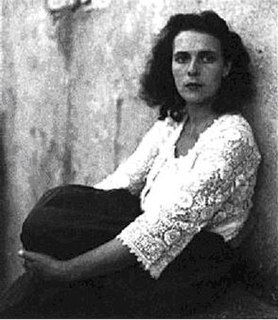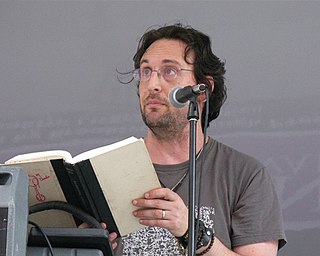A Quote by Leonora Carrington
Military people never seem to apologize for killing each other yet novelists feel ashamed for writing some nice inert paper book that is not certain to be read by anybody.
Related Quotes
[D]on't ever apologize to an author for buying something in paperback, or taking it out from a library (that's what they're there for. Use your library). Don't apologize to this author for buying books second hand, or getting them from bookcrossing or borrowing a friend's copy. What's important to me is that people read the books and enjoy them, and that, at some point in there, the book was bought by someone. And that people who like things, tell other people. The most important thing is that people read.
Corliss wondered what happens to a book that sits unread on a library shelf for thirty years. Can a book rightfully be called a book if it never gets read? If a tree falls in a forest and gets pulped to make paper for a book that never gets read, but there's nobody there to read it, does it make a sound?
I read everything. I'll read a John Grisham novel, I'll sit and read a whole book of poems by Maya Angelou, or I'll just read some Mary Oliver - this is a book that was given to me for Christmas. No particular genre. And I read in French, and I read in German, and I read in English. I love to see how other people use language.
I still love books. Nothing a computer can do can compare to a book. You can't really put a book on the Internet. Three companies have offered to put books by me on the Net, and I said, 'If you can make something that has a nice jacket, nice paper with that nice smell, then we'll talk.' All the computer can give you is a manuscript. People don't want to read manuscripts. They want to read books. Books smell good. They look good. You can press it to your bosom. You can carry it in your pocket.
To have nice interactions with people is a better than to make anyone uncomfortable, than to try to fill up some kind of lull. Like anybody else, there's times when maybe I don't feel like talking with other people. You don't have to be in show business to not feel like making small talk sometimes. But we kind of are all in this together. It makes things easier - it just makes life easier, if we're all nice to each other. I'm sure that sounds terribly corny, but honestly, it's one of those simple things that it's so simple, it's true, and it's so true that it's simple.
This for many people is what is most offensive about hunting—to some, disgusting: that it encourages, or allows, us not only to kill but to take a certain pleasure in killing. It's not as though the rest of us don't countenance the killing of tens of millions of animals every year. Yet for some reason we feel more comfortable with the mechanical killing practiced, out of view and without emotion by industrial agriculture.
The secret to writing is writing. Lots of people I know talk about writing. They will tell me about the book they are going to write, or are thinking about writing, or may write some day in the future. And I know they will never do it. If someone is serious about writing, then they will sit down every day and put some words down on paper.
You learn so much with each book, but it's what you teach yourself by writing your own books and by reading good books written by other people - that's the key. You don't want to worry too much about other people's responses to your work, not during the writing and not after. You just need to read and write, and keep going.
The history of the world is like: He kills me, I kill him, only with different cosmetics and different castings. So in 2001, some fanatics killed some Americans, and now some Americans are killing some Iraqis. And in my childhood, some Nazis killed Jews. And now, some Jewish people and some Palestinians are killing each other.







































